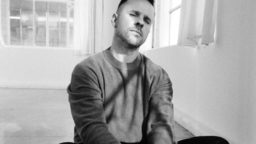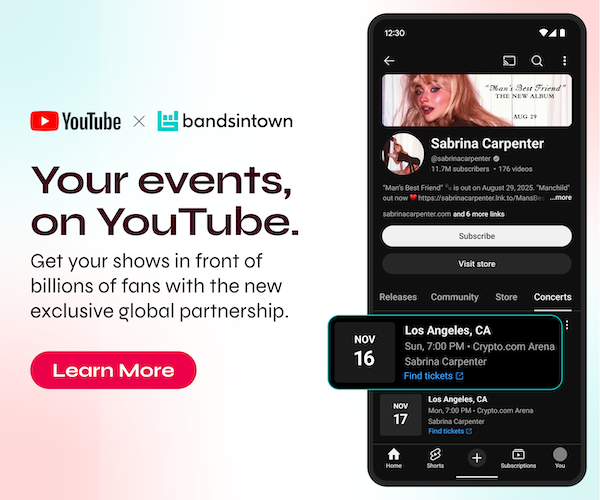“Have a hit, see a writ – that’s never been more true.”
Those words, delivered to MBW by a leading US-based publishing figure on Monday night, have been left ringing in our ears.
Yesterday, we reported how pop-punk band Yellowcard had filed a lawsuit, via lawyer Richard Busch, claiming that Juice Wrld’s smash Lucid Dreams had infringed on the copyright of their own melody.
Meanwhile, chatter has grown louder around the scenario of two brothers, Justin and Jeremiah Raisen, who claim that they are each owed a credit on – and a portion of royalties from – Lizzo’s hit single, Truth Hurts.
According to a New York Times article published last week, the Raisens claim that they came up with the idea to include the line “I just took a DNA test, turns out I’m 100% that Bitch” in a song, Healthy, during a writing session with Lizzo. This line, they allege, which originated in an online meme, was then re-purposed by Lizzo for Truth Hurts.
Today (October 23), Lizzo has fought back against the Raisens’ accusations, via a strongly-worded lawsuit filed in the Central District Court of California, which names both brothers plus fellow songwriter Yves Rothman as defendants and seeks to have their claims declared void for good.
The suit, obtained by MBW and penned by Lizzo’s lawyer, Cynthia S. Arato, claims that “last month, defendants Justin and Jeremiah Raisen came out of the woodwork with an illegitimate claim to co-own a piece of the work” and that “Defendant Yves Rothman later lodged his own copycat claim”.
“Neither claim has any merit,” says Lizzo’s lawsuit. “Lizzo, accordingly, seeks a judicial declaration that the individual defendants Justin and Jeremiah Raisen and Justin ‘Yves’ Rothman did not co-author Truth Hurts, and have no right to co-own that work or to share in its profits.”
From there, the suit pulls no punches.
“The Raisens, moreover, embarked on an escalating campaign of harassment against Lizzo and others involved in ‘Truth Hurts’, threatening to ‘go public’ unless they receive an unwarranted share of this work.”
Claim in Lizzo’s lawsuit, filed today (October 23)
“Lizzo seeks this declaration against the Raisens on two grounds,” it reads. “First, the Raisens did not collaborate with Lizzo or anyone else to create Truth Hurts or any of its component parts. Second, the Raisens, acting through their sophisticated music publisher and an experienced music industry lawyer, expressly withdrew any claim to Truth Hurts, in writing, in April of this year, and subsequently assured Lizzo, again in writing, that they were making no claims to the work.
“Despite their clear, unequivocal, and repeated renunciations, this September the Raisens purported to ‘reinstate’ their wholly unfounded claims – after they saw Truth Hurts become a hit and in a bad faith effort to capitalize on Lizzo’s success. The Raisens, moreover, embarked on an escalating campaign of harassment against Lizzo and others involved in Truth Hurts, threatening to ‘go public’ unless they receive an unwarranted share of this work.”
The suit reveals that Lizzo co-wrote Truth Hurts in 2017. She recorded the song in the summer of 2017, and it was commercially released in September 2017.
“The Raisens did not write any part of the material in question; they did not come up with the idea of including the lyric in the unreleased demo; they did not help Lizzo decide how to sing the lyric in the unreleased demo; and they do not co-own that work,” reads the filing.
“The Raisens have publicly conceded that the source of the line was a 2017 tweet that became a meme. That meme resonated with Lizzo and she decided to sing it in the demo. Nevertheless, each of the Raisens claimed rights to co-own an exorbitant 10% of the song Truth Hurts – for a total of 20% of the work as a whole – and to a corresponding share of the song’s profits.”
The suit claims that the Raisens’ attempt to “hijack a piece of Truth Hurts and its profits” was seemingly put to bed in April 2019.
First, it alleges, Lizzo’s representatives rejected the Raisens’ claims in writing, before Lizzo did the same on a phone call with Justin Raisen on April 2 when, says the suit, he “acknowledged that neither he nor his brother had anything to do with the material through which they had claimed their purported share”.
“That same day, after Justin Raisen made his concession, the Raisens’ manager contacted Lizzo’s lawyer and told her that the Raisens were no longer making any claim to Truth Hurts,” continues the filing, before claiming that two days later, on April 4, the Raisens’ music publishing partner, Kobalt, wrote an email to Lizzo’s representatives which read: “I have been advised by our clients to withdraw our claims to this work. Kobalt makes no claim to Truth Hurts. Thanks for your patience. :)”
(Kobalt is the admin partner for Heavy Duty Publishing, the Raisen brothers’ publishing company, which is also named in Lizzo’s lawsuit as a defendant. Kobalt is not named as a defendant in the filing, and the suit does not suggest any impropriety on Kobalt’s behalf.)
The lawsuit also suggests that a Kobalt rep was in touch with Lizzo’s reps in both July and August 2019 confirming that it had no claim to Truth Hurts. In the latter month, following rumors that Justin Raisen was once again trying to claim a percentage of Truth Hurts, the suit says that a Kobalt employee sent an email which read: “Nothing has changed on our end, Kobalt is making no claims to this work obo [“on behalf of”] either Jeremiah or Justin Raisen. Thank you!”
The suit further notes that, in the period leading up to April 2, the Raisens’ claim effectively blocked Lizzo and others with an interest in Truth Hurts from licensing the song and its associated recording to third parties.
“The Raisens were fully aware of this consequence, both because they are (and were at the time) experienced record producers, songwriters, and musicians, and because Lizzo’s representatives informed the Raisens that the brothers’ claims were holding up the licensing of the song,” it reads.
Twenty months after its initial release, Truth Hurts finally debuted on the Billboard Hot 100 Chart in mid-May 2019. By the first week of September, it had hit No.1. On September 4, 2019, after Truth Hurts hit No. 1 on the Billboard Hot 100, says the suit, the Raisens’ publisher “notified the co-owners of “Truth Hurts” that the Raisens were ‘reinstating their claims’ to own 20% of that song.”
It continues: “The Raisens and their representatives provided no explanation for the Raisens’ purported and invalid backtracking. Upon information and belief, the Raisens have purported to “reinstate” their claims only because of the song’s recent success.
“In addition, as part of their efforts to obtain an undeserved share of both Truth Hurts and its attendant profits, the Raisens engaged in a pattern of harassment directed at Lizzo and the co-writers of Truth Hurts. They commenced an intentionally misleading social media campaign where they falsely claimed to be writers of the song and threatened to expand their intentionally misleading campaign to traditional media and newspaper outlets such as the New York Times; all as part of their effort through duress and intimidation to try and compel Lizzo to comply with their unreasonable demands to give them a 20% interest in a song that they did not write.”
In conclusion, Lizzo’s lawsuit “contends that the Raisens and Rothman are not co-owners of the copyright in Truth Hurts and have never had a right to any profits earned in connection with the song.”
It adds: “Lizzo further contends that the defendants are not coauthors of the unreleased demo song which Lizzo worked on in April 2017, and that, in any event, Truth Hurts does not infringe on any copyright interest defendants’ purport to hold in that unreleased demo. Lizzo further contends that, to the extent the Raisens ever did or could have had such rights, they waived, and/or are estopped from asserting, those rights.”
Lizzo requests that the court declares that the Raisens, Heavy Duty Music Publishing and Rothman have no ownership rights in Truth Hurts, and that those same parties have no rights to any sums of money earned by Lizzo or other rights-holders of the song.
In addition, Lizzo requests a court declaration that Truth Hurts does not infringe any copyright interest purportedly held by Yves Rothman in any unreleased demo song, and that the court award Lizzo “her costs and reasonable attorneys’ fees… and award such other and further relief as the Court may deem proper”.
In a statement given to MBW, Lizzo’s lawyer Cynthia Arato said: “Today we filed a lawsuit on Lizzo’s behalf to establish, in a court of law, that the Raisens are not writers of Truth Hurts and have no right to profit from the song’s success. The Raisens did not collaborate with Lizzo or anyone else to create the song, and they did not help write any of the material that they now seek to profit from, which is why they expressly renounced any claim to the work, in writing, months ago, as the lawsuit makes abundantly clear.
“Although it is all too commonplace for successful artists to be subjected to these type of opportunistic claims, it is nevertheless disappointing that Lizzo had to take this step to put an end to the Raisens’ false claims and their campaign of harassment.”
Earlier today on Twitter, Lizzo wrote: “The men who now claim a piece of Truth Hurts did not help me write any part of the song. They had nothing to do with the line or how I chose to sing it. There was no one in the room when I wrote Truth Hurts, except me, Ricky Reed, and my tears. That song is my life, and its words are my truth.”
However, she noted that the original creator of the “100% that bitch” phrasing “is the person I am sharing my success with.”
The creator of that line, which then inspired the meme Lizzo saw, is singer Mina Lioness.
Lizzo is also facing an addition plagiarism claim for her hit Juice from CeCe Peniston, who claims that the former track infringes on Peniston’s 1992 song, Finally.
“There’s no substantial similarity between ‘Juice’ and ‘Finally’, and there’s no valid claim there,” said a spokesperson for Lizzo’s publisher, Warner Chappell Music, today.Music Business Worldwide




